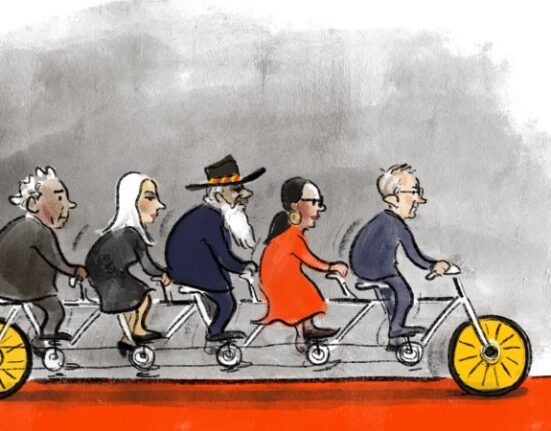In Finland, political positions have traditionally been allocated based on seniority rather than electoral success. Winning a significant number of votes does not guarantee a prominent leadership role. Take, for example, the situation in Etelä-Karjala’s welfare region, where Member of Parliament Suna Kymäläinen (Social Democrats) is set to become the chairperson of the regional government, despite not even being a candidate in the regional elections. Similarly, in Kouvola, Leeni Elina Haimi, who received the most votes on the Centre Party’s list, is likely to secure a position on a committee instead of a more substantial role.
The Social Democratic Party faced a tight contest for the chairmanship of the city council. Inka Häkkinen, the city’s vote queen and a first-time municipal election candidate, clinched her spot by a mere two votes. Should personal vote counts carry more weight in the distribution of positions, considering that a substantial number of votes reflects the voters’ trust? To shed light on this issue, we turned to Markku Jokisipilä, a professor of political history at the University of Turku.
There is no legal obligation in Finland to consider vote counts when allocating positions. Traditionally, political roles have been assigned based on seniority, favoring those with the longest political careers for the most crucial positions. While this may not align perfectly with the democratic ideal, it is the established practice in Finland, as Jokisipilä notes. He emphasizes the importance of decision-makers having experience, cautioning that a system solely based on vote counts could potentially elevate an entirely inexperienced yet popular celebrity to the position of city council chair.
Following elections, the party with the most votes typically initiates negotiations with other parties on position allocation. For instance, in the city council, seats are generally divided according to the votes each party receives. A small party may not have representation in the city council unless it forms a coalition. During negotiations, factors like experience, gender balance, and regional representation are considered to ensure a diverse and competent leadership structure.
Jokisipilä also highlights political skills as a crucial criterion for selection, including networking abilities, collaboration skills, and compromise expertise. He sees no fundamental flaw in the current system but urges voters and the media to scrutinize how parties wield power when distributing key positions of influence. Elevating a candidate from outside the electoral list to a significant position may raise questions about the transparency of party activities.
Even if a candidate with fewer votes secures a significant role, democracy can still prevail. Through a proportional representation system, a party garners enough votes to have the mandate to select suitable individuals for various responsibilities. When a voter casts a ballot, they are, according to Jokisipilä, granting the party broad authority to appoint suitable candidates for different roles.
Inka Häkkinen eagerly anticipates her role as the city council chairperson. Her enthusiasm reflects the evolving landscape of Finnish politics, where the interplay between electoral mandates and party decision-making shapes the leadership fabric of the nation.









Leave feedback about this